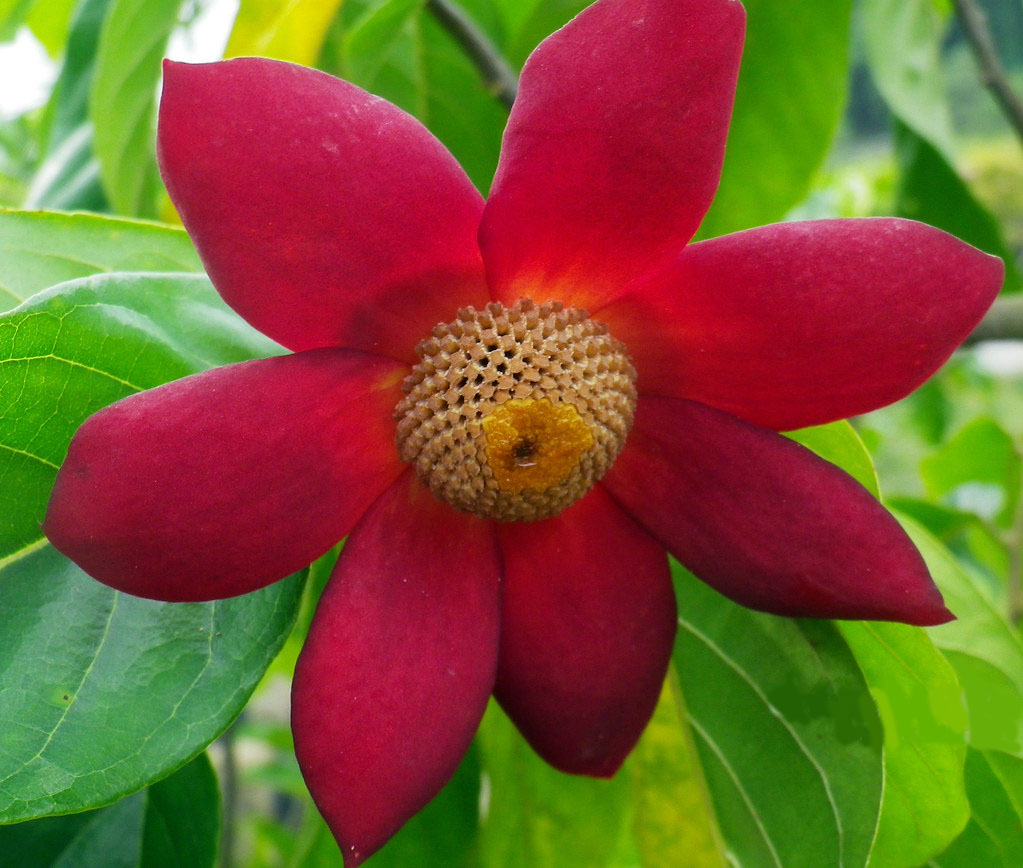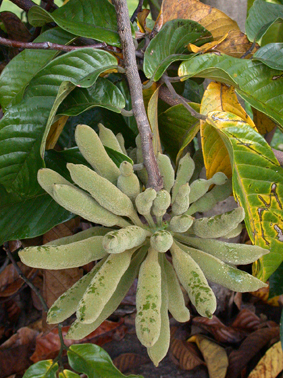Scientists From The University Of Bath, London Discover Chemical In Flowers Of Thai Plant (Uvaria Grandiflora) That Could Treat Pancreatic Cancer
Source: Thailand Medical News Dec 12, 2019 5 years, 4 months, 2 weeks, 1 day, 3 hours, 53 minutes ago
A team of international medical scientists led by the University of Bath have made drug-like molecules inspired by a chemical found in a tropical flower, that they say could in the future help to treat deadly
pancreatic cancer.

Medical researchers from the University of Bath have made three new molecules similar to
Grandifloracin, a chemical found in the tropical
Thai plant
Uvaria grandiflora, which grows in Thailand especially in Trat, the plant and fruits in
Thai are commonly called Kluai Muu Sang or Kluai Phangphon in Trat province.

The study, which was done in collaboration with Nepalese researcher, Professor Suresh Awale from the University of Toyama, Japan, shows that all three molecules kill pancreatic cancer cells in a petri dish. Two of these killed the cells more effectively than the original
Grandifloracin molecule.
As
pancreatic cancer causes few symptoms, many patients don't realise they are affected until it has already spread to other organs.
Pancreatic cancer is also very difficult to treat as the tumours have resistance to many anti-cancer drugs so these molecules could become a valuable tool in combating the condition.
Pancreatic cancer is one of the most aggressive and deadly cancers. Patients usually have an average survival of less than 6 months upon diagnosis. More than 445,000 people globally die of
pancreatic cancer each year, making it the third-leading cause of
cancer deaths. Patients usually don't have symptoms until the
cancer is advanced, making early diagnosis and treatment a challenge.
Whilst this research is more than three years away from trialling new drugs in humans, the researchers say these molecules could become a promising new class of drugs for treating
pancreatic cancer.
The study findings are published in the journal
ChemMedChem.
Senior Lecturer in Chemistry from the University of Bath, Dr. Simon Lewis, told
Thailand Medical News, "
Pancreatic cancers are especially aggressive and fast-growing, so the tumours develop faster than the blood vessels can supply nutrients to them.This leads to a lack of nutrients, to an extent that would kill ordinary cells, but the pancreatic cancer cells can survive these 'austere' conditions and keep on growing. The molecules we have identified are so-called 'anti-austerity' agents that can remove the ability of the cancer cells to tolerate these starvation conditions, so they will die, whereas ordinary cells with a normal supply of nutrients remain unaffected.”
r />
"Through evolution, nature has developed a huge variety of active compounds to help it survive and thrive under a wide range of environmental conditions. These so-called natural products are of great interest in the development of new drugs and as such approximately a quarter of all medicines are derived from plants. As part of our ongoing research into the development of new treatments for brain cancers based on compounds found in daffodils, the research published in collaboration with Dr. Lewis describes a compound also found in flowering plants that is able to selectively kill pancreatic cancer cells in a new way. This exciting approach could potentially lead to a new drug to treat pancreatic cancers that is more effective yet less toxic than current treatments." commented Dr. Lorenzo Caggiano, Senior Lecturer in the Medicinal Chemistry group at the University's Department of Pharmacy & Pharmacology.
The researchers have already commenced research in animal models and hope that human trials could start as early as 2021.
Reference : Benjamin E. Alexander et al, Sidechain Diversification of Grandifloracin Allows Identification of Analogues with Enhanced Anti‐Austerity Activity against Human PANC‐1 Pancreatic Cancer Cells, ChemMedChem (2019). DOI: 10.1002/cmdc.201900549

